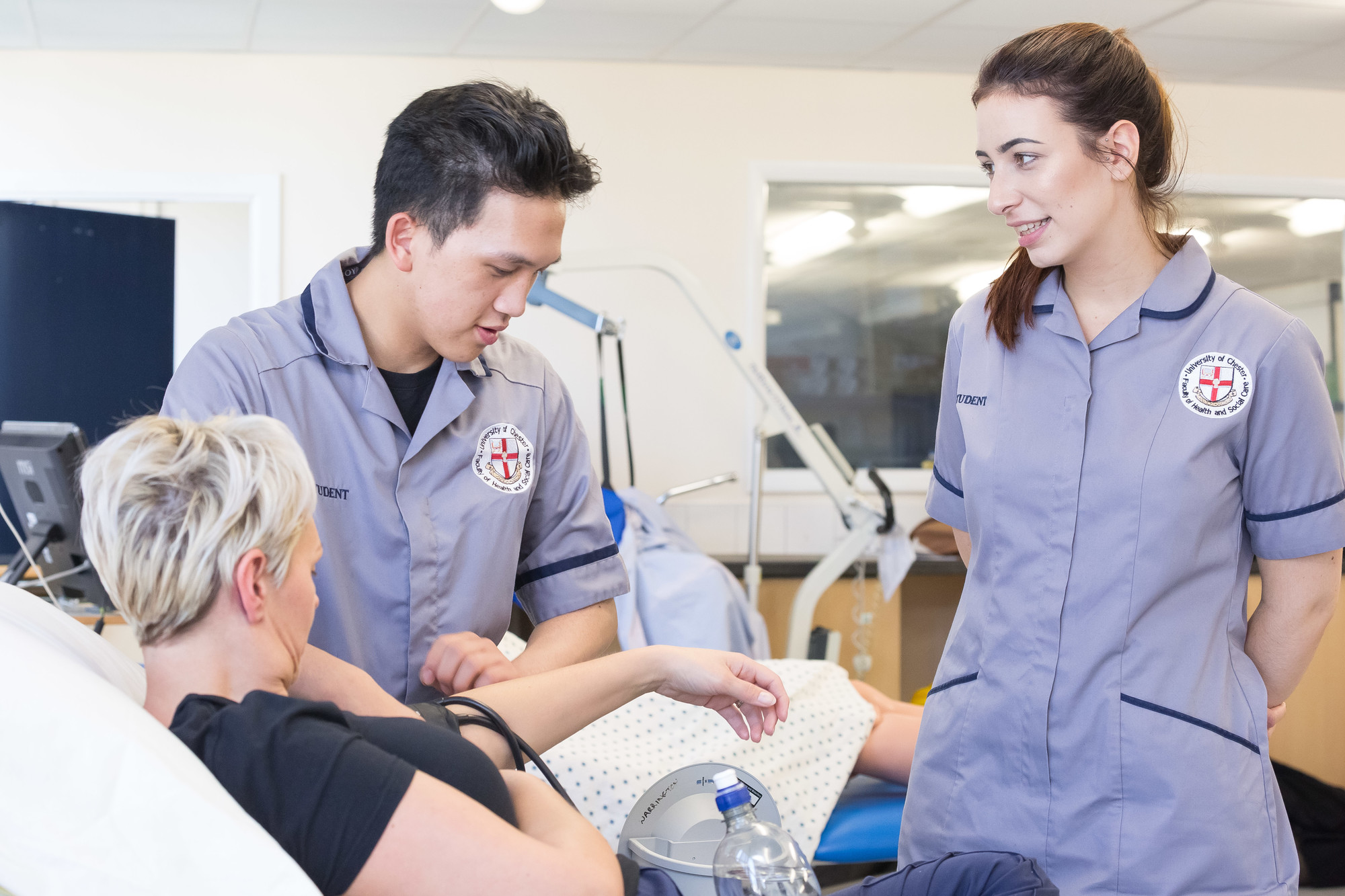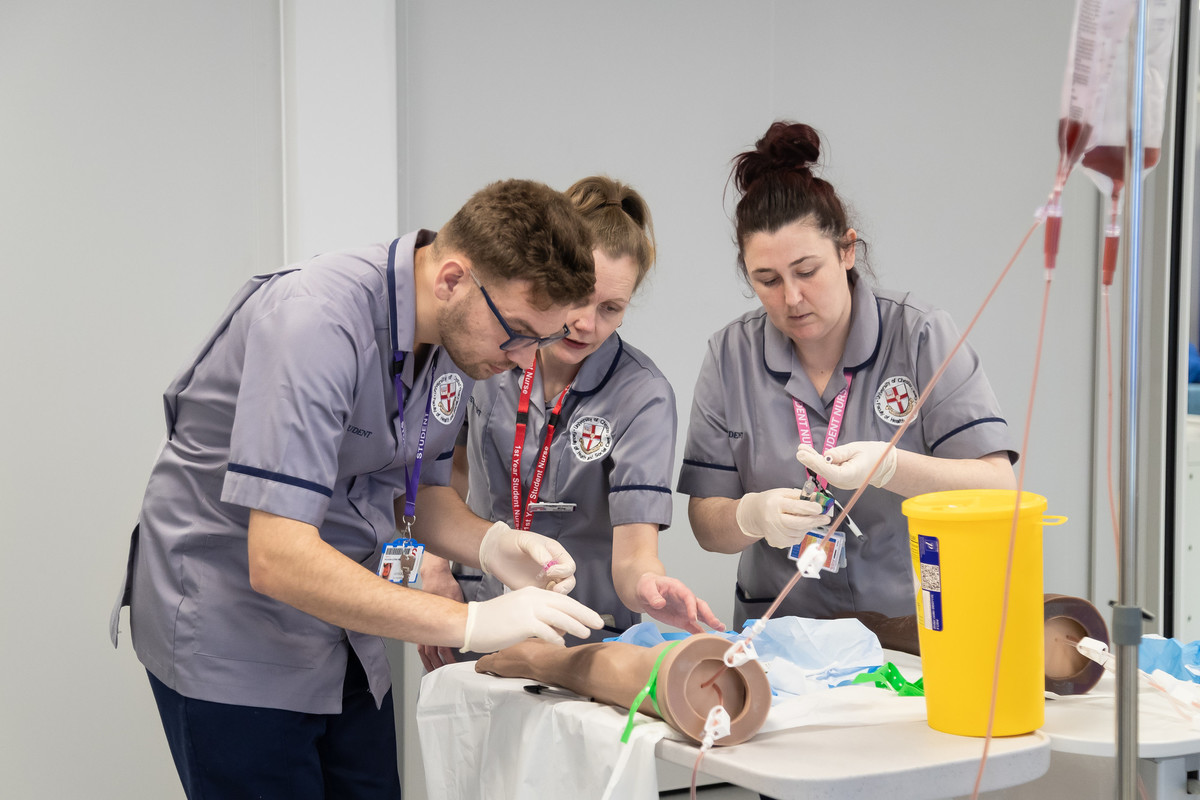Registered Nurse or Midwife with the NMC and a degree or recent completion of a level 7 module.
Specialist Practice Community (District Nursing) PGDip

This course is available at:
- Wheeler, Chester
You are viewing Course summary
Course Summary
This Postgraduate Diploma offers practical support to qualified nurses in delivering advanced practice in a community setting and undertaking quality improvement or service evaluations. On completion of this course, students will have met the NMC requirements of an SPQ District Nurse and will feel confident in their ability to manage complex cases, deliver advanced practice interventions, deliver quality improvement, and evaluate changes made.
Our course is designed to support ‘live’ improvement projects and service evaluations. It appreciates the dynamic and complex environment of contemporary service provision. It includes real case studies and presentations from experienced people with a track record of delivery in quality improvement and service evaluation.
The underpinning philosophy is engagement—‘all share, all learn’—and therefore, the course provides opportunities for students to learn, support, and challenge each other in their improvement efforts.
The course is 40% theory and 60% practice and this is integrated across the duration of the course. You will undertake the theoretical component in the University, and undertake the practice component in a community setting under the supervision of a qualified Practice Assessor and Practice Supervisor from the defined area of practice.
What You'll Study
The information listed in this section is an overview of the academic content of the course that will take the form of either core or option modules and should be used as a guide. We review the content of our courses regularly, making changes where necessary to improve your experience and graduate prospects. If during a review process, course content is significantly changed, we will contact you to notify you of these changes if you receive an offer from us.
Practice is assessed via a Practice Learning Portfolio under the supervision of a practice assessor/supervisor and academic assessor.
Modules are assessed in a variety of ways, e.g. examinations, assignments, presentations, oral examinations and portfolios.
There is also the opportunity for the pathway lead to visit you and your practice assessor/supervisor to aid learning and support. This will allow you to reflect upon your practice and to show progression within the SPC programme.
Entry Requirements
Fees and Funding
£7,170(2025/26)
Fees for this Postgraduate Diploma in 2025/26 are £7,170 per year.
Guides to the fees for students who wish to commence postgraduate courses are available to view on our Postgraduate Taught Programmes Fees page. Here you will also find information about part-time fees and project/placement year fees.
Your course will involve additional costs not covered by your tuition fees. This may include books, printing, photocopying, educational stationery and related materials, specialist clothing, travel to placements, optional field trips and software. Compulsory field trips are covered by your tuition fees.
Your Future Career
Careers service
The University has an award-winning Careers and Employability service which provides a variety of employability-enhancing experiences; through the curriculum, through employer contact, tailored group sessions, individual information, advice and guidance.
Careers and Employability aims to deliver a service which is inclusive, impartial, welcoming, informed and tailored to your personal goals and aspirations, to enable you to develop as an individual and contribute to the business and community in which you will live and work.
We are here to help you plan your future, make the most of your time at University and to enhance your employability. We provide access to part-time jobs, extra-curricular employability-enhancing workshops and offer practical one-to-one help with career planning, including help with CVs, applications and mock interviews. We also deliver group sessions on career planning within each course and we have a wide range of extensive information covering graduate jobs .



